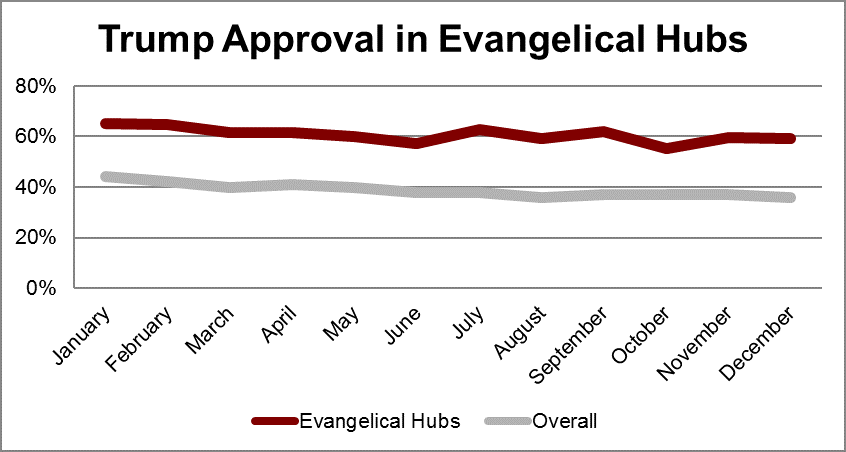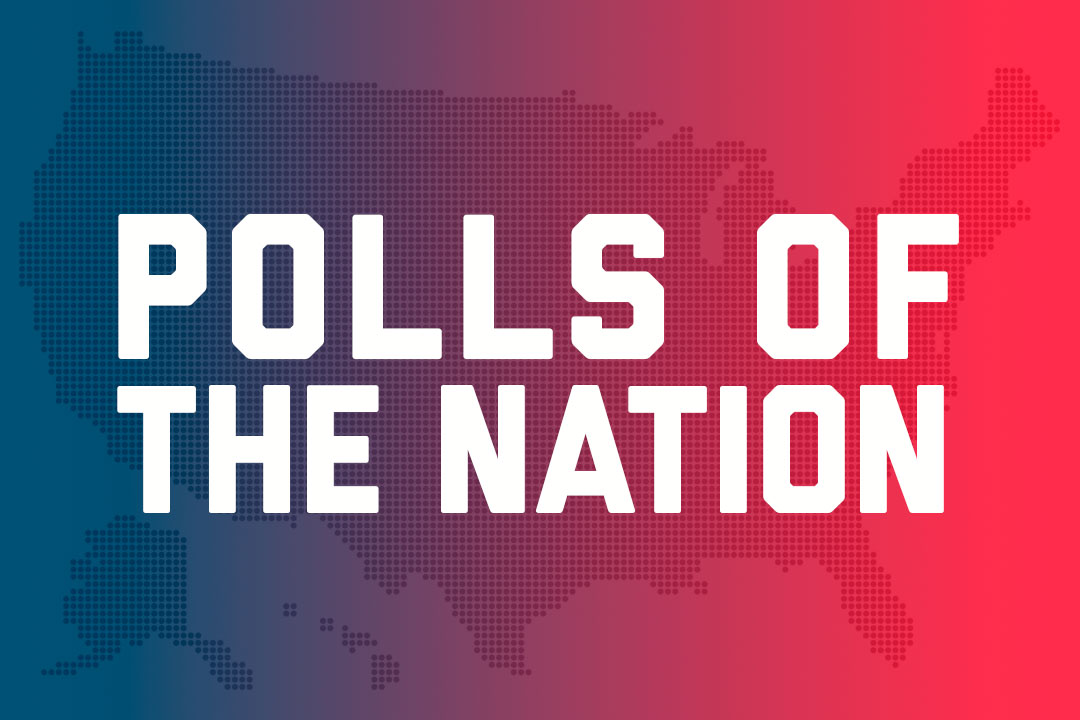By Dante Chinni
Research Professor and Director of the American Communities Project
At the one-year anniversary of Donald Trump’s inauguration, the American Communities Project is using 2017 data from Gallup to analyze how different kinds of communities have viewed the president’s job performance. Where are his strengths and weaknesses as year two begins?
Part Four: Evangelical Hubs

As President Donald Trump watched his approval ratings sink through 2017, one set of communities remained a relative bright spot for him, the “evangelical hubs.”
The president’s approval numbers declined in those centers of cultural conservatism, but even after a six-point drop, from 65 percent in January of 2017, Trump maintained a healthy 59 percent approval rating in December, according to Gallup. That was 23 points above his overall approval rating in Gallup’s poll data.
From the start, Trump has drawn strong support from these 372 counties primarily based in the southern states (you can see them on the map below in light purple) and many political analysts have wondered why.
The brash, thrice-married New York billionaire may seem an odd fit for the nation’s Christian conservatives, but the president has delivered on some important promises for voters who live in these communities.
Trump’s selection of Neil Gorsuch to serve on the Supreme Court was applauded by evangelical pastors. And even though the president has changed positions on abortion over the course of his life, Christian conservatives believe he ended up in the right place, that is, in opposition to it. (Just this week, the White House announced it would be proposing new protections for doctors who morally object to providing abortion services to treating transgender patients.)
But visit with voters in evangelical hub communities, as we did this year for NBC News, and you’ll hear support that goes deeper and extends to the way Trump is challenging not just Washington or “elites” but the establishment of the Republican Party. Even if voters in places like Wilkesboro, North Carolina don’t always approve of the language Trump uses or his temperament, they believe his heart is in the right place and they have a champion in the White House.
Much has been made of Trump’s appeal to blue-collar workers, and many of the jobs in these communities fall into that category, but his appeal in the evangelical hubs is about much more than economics, it is about identity.
Trump largely spent the first year of his presidency trying to make sure his base was happy. His 59 percent approval in the evangelical hubs shows a good chunk of it still is. Voters in these places are very much with him. If poll numbers ever show that Trump is drifting down to 50 percent in these places (or below 50 percent), it will likely mean his presidency has bottomed out.
Dante Chinni directs the American Communities Project at the George Washington University and writes the “Politics Counts” blog for The Wall Street Journal. His research explores the divides in America by studying how demographic differences affect community economics, culture and politics.


